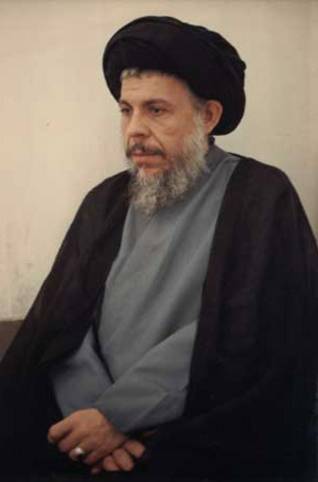
After neutralizing the Kurdish Democratic Party (KDP), Baghdad still had to eliminate the Iraqi Communist Party (ICP). It soon found arguments for ridding itself of the party, and in late 1978 and early 1979, the regime went after the Communists with a vengeance. The party’s leaders were hunted down, even in foreign countries.
In addition to resistance from the Kurds and Communists, there had been resistance from Shiite Arabs. Already in the late 1950s the Shiite ulama had sprung into action, after decades on the sidelines. Their activities were initially directed against tendencies toward secularization in Iraqi society. The growing influence of the Communists was of particular concern to them. The young alim Sayyid Mohammad Baqir al-Sadr was instrumental in the creation of the Dawa Party. The efforts of the Baath regime to take control of all levels of society and extend the reach of the centralized state ultimately brought it onto a collision course with the Shiite clergy, who were defending their traditional autonomy.
The Baath regime attempted to eliminate support for the Shiite ulama with a series of measures. For instance, the number of students in the madrasas (theological schools), particularly in Najaf, was reduced, and buildings and land belonging to the religious centres were seized. A wave of arrests – and, in the case of foreign students, deportations – followed protests against these measures. Spurred on by events in neighboring Iran, where a mass movement under the leadership of the Grand Ayatollah Sayyid Ruhollah Musavi Khomeini had brought about the downfall of the Shah in the late 1970s, the confrontation between the Baath regime and a series of clandestine Shiite Islamist organizations – collectively termed the ‘Islamic Movement’ – reached a climax.
The charismatic theoretician and leader of the movement, the now Grand Ayatollah Sayyid Mohammad Baqir al-Sadr, was arrested and executed in early April 1980, an unprecedented step that not even the Shah had dared to take against his opponent Khomeini in the 1960s (he merely had him exiled). After the execution of Sayyid al-Sadr the hunt for actual and suspected sympathizers with the movement – the Dawa Party and other platforms – continued, and many were arrested and tortured or executed. Others were deported to Iran or went into self-imposed exile.
As a result of this internal repression, a flood of refugees began in the second half of the 1970s. Many refugees made it only as far as neighbouring Iran and Syria. Others succeeded in reaching Western Europe and elsewhere, where they asked for (and often received) political asylum. With the wave of repression against the Shiite Islamists, the Baath regime rid itself of its last organized internal opponents, although the Kurds, Communists, and Shiite Islamists continued their struggle against the regime from exile. As a result of purges of opponents and rivals within its own ranks that followed the 1968 coup d’état, the Baath regime was, by the end of the 1970s, more firmly in control than ever.

